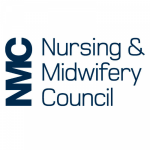In a phone interview you should be careful with aspects of verbal communication. The interviewer is not aware of your clothing, hygiene or hair colour, however, he or she is able to recognize and value aspects only from your voice, like optimism, attitude, willingness to learn, enthusiasm and openness to change.
It is therefore very important to care for the tone you use, it must be paused and with a timely intonation. The volume is also important; it is neither convenient raising your voice nor whispering. Although surprising, it is easy to know if the other person is smiling or not. The tone and manner of speaking really helps in connecting with someone.
Before starting the telephone interview it is advisable to be prepared for everything
- A very useful tool is having your resume in front of you. This way, when they ask you about your work life you can always take a quick look to the dates or details that you may have forgotten
- Making a list of your professional accomplishments.
- Have a pen and paper near you during the interview and take notes of any important comments.
- Make a thorough search of the hospital, any information can be very valuable. Read their “mission and values”
- Prepare common interview questions in advance with a partner or a friend.
- Make sure you have battery on the mobile phone and that you are not able to receive more calls while talking to the interviewer.
- Be sure not to have distractions around you that can bother you during the interview.
- Having a glass of water nearby to drink during the interview so you can have your voice always in tune.
Typical questions that the hospital can ask during a telephone interview
About you:
- The name of the Hospital you are working at, your job description, how long have you been working.
- What were your responsibilities?
- What are the biggest problems you had to resolve? And how did you do it?
- Why do you want to leave your current job?
- Why do you want to change jobs for one in England, Ireland or other country?
- What date you are available if you pass this interview.
- How long of a notice you must give to your current job before leaving.
About the new job and the hospital:
- What interested you about this job offer?
- Why do you want this job?
- What qualities do you have to perform the tasks effectively?
- What do you know about the hospital?
- Why do you want to work in this particular hospital?
- What challenges do you expect to find in the workplace?
- What contributions can you make by working with the hospital?
- Question about a particular case and how you act on that case. It is always better to based yourself on your experience and give examples that have happened to you in the past.
- Do you have any questions about the hospital that we have not answered yet?
Questions about yourself:
- What do you expect from your new job? What it is important to you?
- What is your best strength?
- What is your biggest weakness?
- Describe a normal week for you.
- How would you describe your work pace?
- How do you handle stress and pressure?
- What has been your biggest problem at work and how did you handle it?
- If one of your colleagues makes a mistake what would you do?
- What motivates you?
- Tell me a little bit about yourself.
- Questions about your future, what do you want to get? Where do you see yourself in 15 years?
- What kind of work environment do you prefer?
- Questions about your skills
Questions to ask to the interviewers
During the last part of the interview, they will ask you if you have any comments or questions that you would like to ask. Have prepared one or two questions to ask. You can perfectly inquiry about the unit where you want to work and explain why you want to work on that area. If there is anything specific you want to ask, this is the right time.
Prepare well all these questions since most are going to be about yourself or about the hospital. You must have the appropriate knowledge about both matters and if you prepare the answers beforehand you may feel more comfortable on the interview.




